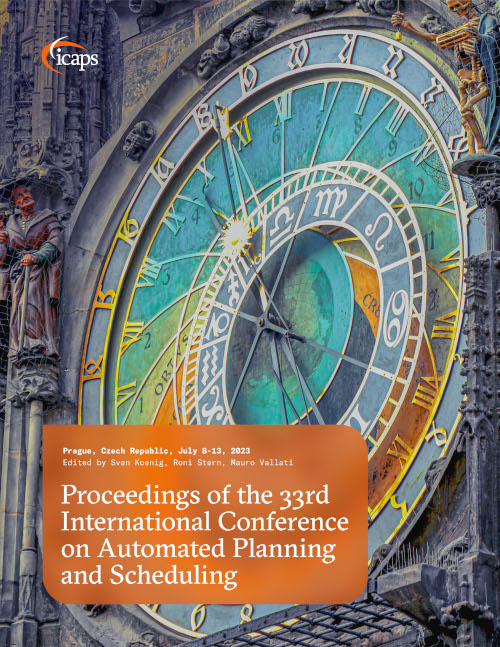Falsification of Cyber-Physical Systems Using PDDL+ Planning
DOI:
https://doi.org/10.1609/icaps.v33i1.27172Keywords:
Planning and scheduling with mixed continuous and discrete states/actions/decisionsAbstract
This work explores the capabilities of current planning technologies to tackle the falsification of safety requirements for cyber-physical systems. Cyber-physical systems are systems where software and physical processes interact over time, and their requirements are commonly specified in temporal logic with time bounds. Roughly, falsification is the process of finding a trajectory of the cyber-physical system that violates the safety requirements, and it is a task typically tackled with black-box algorithms. We analyse the challenges posed by industry-driven falsification benchmarks taken from the ARCH-COMP competition, and propose a first attempt to deal with these problems through PDDL+ planning instead. Our experimental analysis on a selection of these problems provides empirical evidence on the feasibility and effectiveness of planning-based approaches, whilst also identifying the main areas of improvement.Downloads
Published
2023-07-01
How to Cite
Aineto, D., Scala, E., Onaindia, E., & Serina, I. (2023). Falsification of Cyber-Physical Systems Using PDDL+ Planning. Proceedings of the International Conference on Automated Planning and Scheduling, 33(1), 2-6. https://doi.org/10.1609/icaps.v33i1.27172

